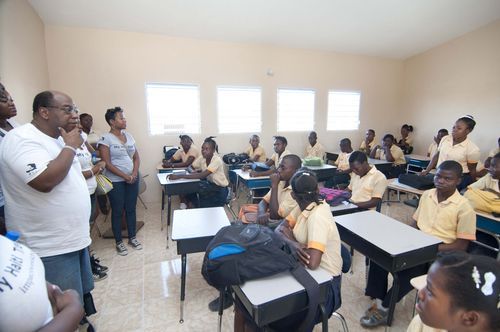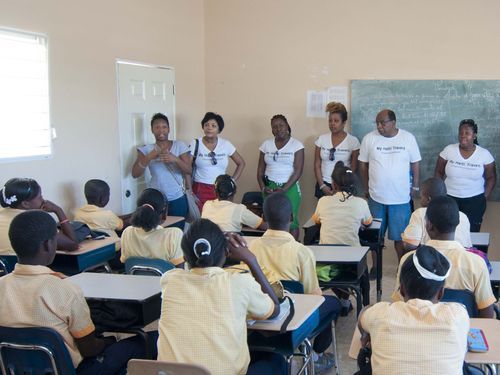For many, when they think of the tourism industry, thoughts of increased capital, business growth and new jobs come to mind. And as Haiti slowly recovers from the catastrophic effects of the 2010 earthquake, it seems a revival of its tourism industry makes sense.
For most of our Caribbean neighbors scattered across the Atlantic Ocean: Dominican Republic, Jamaica, Antigua and Barbuda, Puerto Rico and Trinidad and Tobago, just to name a few, tourism is big business.
So when David Toussaint founded Haiti Tourism Inc., in 2011, he and his team aggressively marketed the island as a vacation hotspot for anyone searching for their next island getaway. The company’s Facebook and Twitter feeds regularly feature images of the country’s green pastures, crystal blue oceans and smiling locals. And its aggressive advertising campaigns seem to be working.
Last week, Carnival Corporation, the owner of Carnival Cruise Lines has signed an intent agreement with the Haitian government for a cruise port off the northern coast of Haiti, on Ile de la Tortue. Royal Caribbean already has acquisition of Labadee cruise port, also along on the northern coast. The new venture promises to create 900 job positions.

While its natural for many to be excited for Haiti’s plunge into the tourism industry, let’s look back a few decades when Haiti was a premier hotspot for vacationers. Bill and Hilary Clinton spent part of their honeymoon there in 1965. Writer Ernest Hemingway once visited. And in the 1954 issue of LOOK magazine, Haiti was part of its travel issue alongside the Florida Keys and San Francisco.
But the country was still in disarray. Soil erosion and deforestation were destroying the mainland. Unemployment was high and the minimum wage, which was just five gourdes, hardly sustained the working class.
Filmmaker Stephanie Black explores what some describe as “neo-colonialist tourism,” in her 2001 documentary Life and Debt. The film examines the economic and social issues affecting Jamaica despite its booming tourism industry. Small companies fail, unable to compete with cheap exports and outside corporations. Beaches become privatized, and homes acquisitioned as land are bought and sold to corporations interested in gated resorts and villas for the rich.
How much will Haitian locals benefit from tourism today? Our Caribbean neighbors remain vastly impoverished despite their decades in the business so it’s important to realize that Haiti may suffer the same fate. It is up to the people to ensure that their needs are met first, and not those on the outside.
Haiti has enough beauty, culture and richness to awe the world. But its people should be first in line to reap the benefits.
This tourism video, made in Kreyol, it sounds like a campaign to get the locals excited and ready for the country’s tourism venture: https://www.youtube.com/watch?v=3Kf1Hj77Msg
Annabella Jean-Laurent is a Haitian-American writer who explores race, media and culture in society. Her current project surrounds an important but little known exhibit called the Negro Building at the 1895 Cotton States and International Exposition. Follow her @militantbarbie on Twitter and Facebook.



